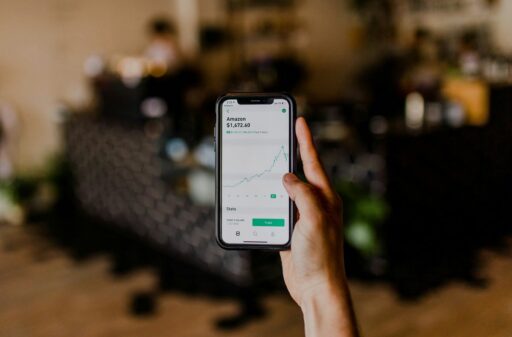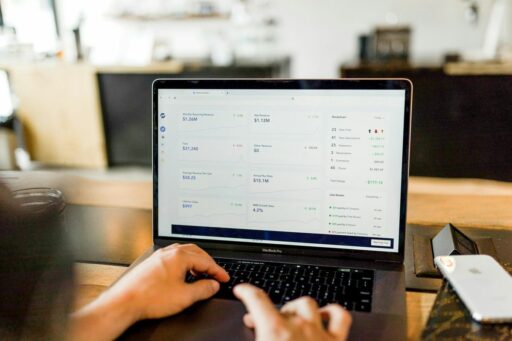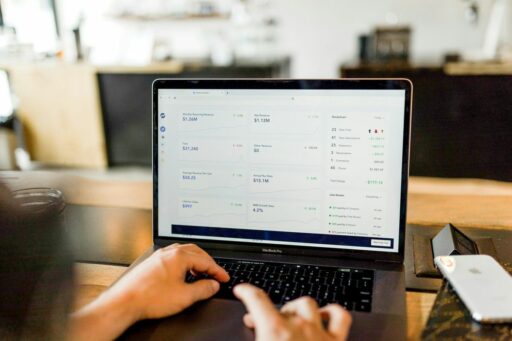Entering the world of cryptocurrencies can be both exciting and daunting for beginners. With a myriad of cryptocurrencies available and numerous exchanges to choose from, navigating the crypto landscape can seem like a complex task. In this beginner’s guide, we’ll explore the top cryptocurrency exchanges, providing valuable insights to help you make informed decisions and kickstart your journey into the fascinating realm of digital currencies.
Key Takeaways
- Understanding the different types of crypto exchanges and their features is crucial for choosing the right platform.
- Setting up an exchange account involves selecting a reputable platform, completing verification, and understanding wallet options.
- Trading on exchanges requires knowledge of market charts, basic trading strategies, and risk management techniques.
- Maximizing your experience on crypto exchanges can be achieved by leveraging tools, staying informed, and engaging with the community.
- Navigating regulatory and security considerations is essential for compliance and protecting your investments in the crypto market.
Understanding the Basics of Crypto Exchanges

What is a Crypto Exchange?
A crypto exchange is a digital marketplace where individuals can buy, sell, or trade cryptocurrencies. Unlike traditional financial institutions, these exchanges do not require a bank to verify transactions, allowing for a more direct and often faster trading experience.
Crypto exchanges come in various forms, each with its own set of features and benefits. Users can choose from platforms that offer a wide range of digital assets or those that specialize in a select few. The choice of exchange can significantly impact your trading strategy and the assets you can access.
The essence of a crypto exchange lies in its ability to connect buyers and sellers in an environment that prioritizes speed, security, and accessibility.
When considering a crypto exchange, it’s crucial to understand the differences between them and other financial services like brokerages. While a brokerage facilitates transactions on your behalf, a crypto exchange provides a platform for peer-to-peer trading.
Types of Exchanges: Centralized vs. Decentralized
When venturing into the world of cryptocurrency trading, one must understand the fundamental differences between centralized and decentralized exchanges. Centralized exchanges (CEX) are akin to traditional stock markets, where an organization facilitates the trading process. They are known for their high liquidity and a broad selection of tradable cryptocurrencies. On the other hand, decentralized exchanges (DEX) offer a more autonomous trading environment, where transactions occur directly between users through smart contracts, without the need for an intermediary.
-
Centralized Exchanges (CEX):
- Operated by a single authority
- Act as intermediaries
- Higher liquidity
- Wide variety of cryptocurrencies
- Potential security risks
-
Decentralized Exchanges (DEX):
- No central authority
- Peer-to-peer transactions
- More control over funds
- Lower liquidity
- Limited fiat currency support
While a CEX might be more user-friendly, a DEX provides a ‘do it yourself’ experience that appeals to those seeking greater control over their assets. Each type of exchange has its own set of advantages and challenges, and the choice largely depends on the user’s preferences and trading goals.
Key Features to Look For in an Exchange
When venturing into the world of cryptocurrency trading, selecting the right exchange is a critical step. Security should be your top priority, as it ensures the safety of your funds and personal information. Exchanges with strong security protocols, like two-factor authentication and cold storage, are highly recommended.
User experience is another vital aspect. A user-friendly interface and intuitive navigation are essential for efficient trading.
Here are some additional features to consider:
- User authorization and verification to establish a secure starting point.
- A balance between essential security features and personal needs.
- The variety of cryptocurrencies offered, especially if you’re interested in trading beyond the major coins.
Remember, the best exchange for you is one that aligns with your specific requirements and trading goals.
Setting Up Your First Crypto Exchange Account

Choosing the Right Exchange for You
Selecting the ideal crypto exchange is a critical step in your investment journey. Security should be your top priority, as you’ll be entrusting the platform with your funds and personal data. Look for exchanges with robust security measures like two-factor authentication and cold storage.
Consider the user interface and customer support of the exchange. A user-friendly platform with responsive support can significantly enhance your trading experience, especially as a beginner.
When evaluating exchanges, prioritize those with a proven track record, positive user reviews, and a commitment to user education.
Here are some key factors to consider:
- Security features (2FA, cold storage, encryption)
- User-friendly interface
- Quality of customer support
- Track record and user reviews
- Accessibility and ease of use
By carefully weighing these aspects, you’ll be better positioned to choose an exchange that aligns with your needs and trading goals.
Verification Processes and Security Measures
When setting up your first crypto exchange account, security should be your top priority. Exchanges are not just platforms for trading; they are the custodians of your sensitive personal information and digital assets. It’s essential to look for exchanges that offer robust security features, such as two-factor authentication (2FA) and cold storage for the majority of funds.
- CREATE AN ACCOUNT: Sign up by providing necessary information and documents to meet regulatory standards.
- SECURE YOUR ACCOUNT: Implement 2FA and other security measures to prevent unauthorized access.
- DEPOSIT FUNDS: Follow the exchange’s procedures to safely deposit your funds for trading.
Advanced security measures play a significant role in safeguarding your accounts and crypto assets. Always scrutinize the platform’s security features as thoroughly as you’d examine a lock for a safe.
Be aware of both external threats and the potential for internal security breaches. Choosing a reputable exchange with strong security protocols is crucial. Remember, safeguarding your digital treasure is akin to a ship’s captain securing his vessel; both require diligence and the right tools.
Making Your First Deposit and Understanding Wallets
Once you’ve chosen a suitable exchange and set up your account, the next step is to fund it. Depositing funds into your crypto exchange account is a straightforward process. From there, you can select the cryptocurrency you want to deposit and click on the "Deposit" button. It will provide you with a unique deposit address or QR code for transferring your funds.
Before making any transactions, it’s essential to understand the different types of wallets available:
- Software Wallets: Ideal for easy access and frequent transactions.
- Hardware Wallets: Best for enhanced security and storing large amounts of cryptocurrencies.
Each wallet type has its advantages, and your choice should align with your security needs and trading habits. Remember, the wallet you choose is where you will manage and secure your digital assets, so take the time to select one that suits your needs.
It’s crucial to ensure that any transfer of funds is done cautiously and to the correct address. A single mistake in the address can lead to irreversible losses.
The Art of Trading on Crypto Exchanges

Reading and Understanding Market Charts
To successfully navigate the dynamic crypto landscape, it’s essential to grasp the art of reading market charts. These charts are the compass by which traders set their course, offering visual representations of price movements, trading volumes, and historical trends.
Understanding market charts involves recognizing patterns and indicators that signal potential changes in the market. For instance, a ‘head and shoulders’ pattern might indicate a reversal in the current trend, while a ‘bullish engulfing’ pattern could suggest an upcoming price increase. Here’s a simple breakdown of common chart indicators:
- Moving Averages: A line that represents the average closing price over a set period.
- Volume: The total number of coins traded in a given timeframe.
- RSI (Relative Strength Index): A momentum indicator that measures the speed and change of price movements.
By familiarizing yourself with these tools, you can begin to anticipate market shifts and make more informed trading decisions. Remember, the goal is not to predict the future but to make educated guesses based on available data.
Trading Strategies for Beginners
As a novice in the world of crypto trading, it’s crucial to start with a strategic approach that aligns with your goals and risk tolerance. Here are some foundational strategies to consider:
- Dollar-cost averaging: This involves regularly buying a fixed dollar amount of a particular cryptocurrency, regardless of its price, to reduce the impact of volatility.
- Diversification: Spread your investments across different asset classes to mitigate risk.
- Using stop-loss orders: Protect your investments by setting orders that sell your asset when it reaches a certain price.
Remember, the key to successful trading is not only in the strategies you choose but also in managing your risks and continuously learning.
It’s also advisable to store funds across multiple secure wallets and avoid complex strategies like margin trading until you have more experience. By taking these steps, you can build a solid foundation for your trading journey.
Managing Risks and Using Stop-Loss Orders
In the volatile world of cryptocurrency trading, managing risks is paramount. A stop-loss order is a critical tool that allows traders to set a limit on potential losses. By specifying a price at which your asset will be automatically sold, you can prevent significant financial damage during sudden market downturns.
To effectively manage risks, consider these strategies:
Dollar cost averaging into positions
Diversifying across asset classes
Using stop-loss orders
Storing funds across multiple secure wallets
Avoiding margin trading until experienced
Remember, while stop-loss orders can provide a safety net, they are not foolproof. Market conditions such as slippage or gaps in price can sometimes result in losses exceeding your set threshold. It’s also crucial to stay informed about the market and regulatory changes that could impact your trading strategy. The landscape of crypto trading is ever-evolving, with new developments and crypto trading strategies emerging regularly.
Maximizing Your Crypto Exchange Experience

Leveraging Exchange Tools and Resources
To maximize your experience on a crypto exchange, it’s essential to leverage the tools and resources provided. Most exchanges offer a suite of analytical tools that can help you make informed trading decisions. These can range from real-time charts and data analysis to educational materials that can enhance your understanding of the market dynamics.
- Real-time market charts
- Historical data analysis
- Educational resources
- API access for automated trading
It’s also important to take advantage of the educational resources available. Many exchanges offer tutorials, webinars, and articles that can provide valuable insights into the world of cryptocurrency trading. Blockquote:
Embrace the learning curve. The more you understand the tools and resources at your disposal, the better equipped you’ll be to make strategic trades.
Remember, the key to successful trading is not just about having the right tools, but also knowing how to use them effectively. Take the time to explore and familiarize yourself with all the features your exchange has to offer.
Staying Informed: Research and Market Analysis
In the dynamic world of cryptocurrency, staying informed is crucial for making sound investment decisions. Research and market analysis are the bedrock of successful trading, providing insights into market trends, asset performance, and potential investment opportunities.
To begin with, familiarize yourself with the various resources available for cryptocurrency research. These include:
- News and insights sections on financial websites
- Earnings and event calendars
- Analyst ratings and reports
- Insider trade data
By consistently analyzing this information, you can develop a nuanced understanding of the market and identify trends that may influence your trading decisions.
Moreover, it’s important to keep an eye on the broader economic indicators and news that can affect the crypto market. This includes regulatory news, technological advancements, and macroeconomic factors. Remember, the more informed you are, the better equipped you’ll be to navigate the volatile waters of cryptocurrency trading.
Engaging with the Community and Learning from Experts
The crypto world thrives on community engagement and the shared wisdom of its members. Engaging with the community is not just about socializing; it’s a crucial step in deepening your understanding of the crypto ecosystem. Online platforms, such as forums and social media groups, serve as hubs for discussions, information sharing, and learning from experienced enthusiasts and experts.
- Participate in online forums and social media groups
- Attend webinars and virtual meetups
- Join local crypto clubs or meetups
By actively participating in these communities, you not only gain knowledge but also build valuable connections that can support your crypto journey.
Remember, the insights you gain from these interactions can be as valuable as formal education. The community is often the first to identify emerging trends and share practical strategies that can be immediately applied to your trading or investment decisions.
Navigating Regulatory and Security Considerations

The Importance of Compliance and Regulation
In the dynamic world of cryptocurrency, compliance with regulations is not just a legal obligation but a cornerstone for maintaining trust and stability in the market. Traders must navigate a complex landscape of laws that vary by jurisdiction, including national, state, and local regulations. These laws often encompass anti-money laundering (AML) and know your customer (KYC) requirements, which are critical for preventing illicit activities.
The evolving nature of cryptocurrency regulations demands that traders stay informed and adaptable to ensure ongoing compliance.
It’s essential for traders to be proactive in understanding and adhering to these regulations to avoid penalties and to contribute to the legitimacy of the crypto trading environment. Here are some key aspects to consider:
- Declaring capital gains and losses
- Reporting suspicious activities
- Adhering to securities regulations
- Avoiding transactions with sanctioned regions
Mitigating risks associated with crypto trading, such as market volatility and potential security breaches, is also a part of regulatory compliance. By staying informed and vigilant, traders can safeguard their investments and navigate the crypto space responsibly.
Protecting Your Investments: Security Best Practices
In the digital realm of cryptocurrencies, security should be your top priority. When selecting an exchange, ensure it employs robust security measures like two-factor authentication (2FA) and cold storage for the majority of funds, which are kept offline. Here are some best practices to enhance the security of your crypto investments:
- Be aware of crypto scams and stay informed about current cryptocurrency regulations.
- Use strong passwords combined with 2FA to secure your accounts and wallets.
- Avoid using public Wi-Fi when accessing your crypto accounts to prevent unauthorized access.
- Regularly monitor your investments and stay abreast of market trends.
To mitigate risks, it’s essential to research and select reputable exchanges that prioritize security and transparency.
Remember, never keep large amounts of cryptocurrency on an exchange for an extended period. Instead, transfer funds to a personal wallet where you control the private keys. By following these steps, you can safeguard your digital treasure and navigate the crypto waters with confidence.
Understanding the Tax Implications of Crypto Trading
When engaging in crypto trading, it’s essential to understand the tax implications that come with it. Cryptocurrency transactions can be subject to capital gains tax, and the specific rates can vary depending on the jurisdiction. It’s crucial for traders to declare all crypto-related earnings to adhere to tax regulations.
Tax compliance is not just a legal obligation but also a step towards legitimizing the practice of crypto trading.
Here’s a more specific breakdown of tax considerations for crypto traders:
- Reporting capital gains and losses from crypto transactions.
- Understanding how securities regulations may impact your trading activities.
- Being aware of the tax treatment for different types of crypto assets, such as Bitcoin, altcoins, and tokens from initial coin offerings (ICOs).
- Keeping detailed records of all transactions, including dates, amounts, and the fair market value of the cryptocurrency at the time of the transaction.
Remember, staying informed and compliant with the evolving landscape of cryptocurrency regulations is a responsibility that comes with the territory of trading. As regulations continue to develop, traders must keep abreast of changes to ensure they remain on the right side of the law.
Conclusion
As we wrap up our beginner’s guide to navigating the world of crypto exchanges, it’s clear that these platforms are more than just marketplaces; they are gateways to the dynamic and ever-evolving landscape of digital currencies. By carefully selecting a reputable exchange, prioritizing security, and staying informed about the latest trends and updates, you can embark on your crypto journey with greater confidence. Remember, the key to success in the crypto world lies in continuous learning and cautious investing. Whether you’re making your first trade or diversifying your portfolio, the insights provided in this guide aim to steer you towards a rewarding experience in the bustling harbors of cryptocurrency trading.
Frequently Asked Questions
What is a Crypto Exchange?
A crypto exchange is a platform where users can buy, sell, and trade cryptocurrencies. It acts as an intermediary between buyers and sellers, facilitating transactions and often providing additional services such as wallet storage and market analysis.
What are the main differences between Centralized and Decentralized Exchanges?
Centralized exchanges (CEXs) are managed by a company that provides infrastructure and security, offering ease of use and customer support. Decentralized exchanges (DEXs) operate without a central authority, using smart contracts on a blockchain to facilitate peer-to-peer transactions, offering increased privacy and control over funds.
How do I choose the right crypto exchange for me?
Consider factors such as security measures, user interface, fees, available cryptocurrencies, and customer support. Research and read reviews to understand the exchange’s track record and reputation. It’s also important to ensure that the exchange complies with regulations in your jurisdiction.
What should I know about crypto exchange verification processes?
Most exchanges require some form of identity verification to comply with anti-money laundering (AML) and know your customer (KYC) regulations. This process can include providing personal information, uploading identification documents, and sometimes a proof of address.
What are the best practices for securing my investments on a crypto exchange?
Enable two-factor authentication (2FA), use strong and unique passwords, and be cautious of phishing attempts. Consider using hardware wallets for long-term storage of significant amounts of cryptocurrencies. Always keep your software up to date and educate yourself on the latest security practices.
Are there tax implications when trading cryptocurrencies?
Yes, many jurisdictions consider cryptocurrencies as taxable assets. Trading, selling, or using cryptocurrencies for purchases can trigger capital gains taxes. It’s important to keep detailed records of your transactions and consult with a tax professional to understand your obligations.





